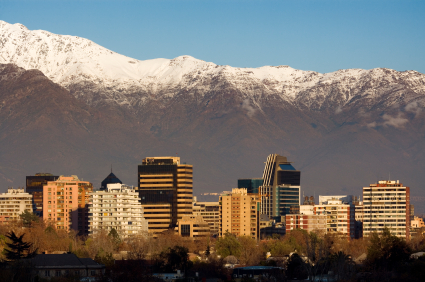
Wine and the Good Life
Drink the good stuff. There’s no rewind on the play of life; we retirees should enjoy good wine and the good food that goes with it. Every day, as much as we can, provided we maintain our health and body.

Drink the good stuff. There’s no rewind on the play of life; we retirees should enjoy good wine and the good food that goes with it. Every day, as much as we can, provided we maintain our health and body.

If you were born between World War II and 1960 and you’re even semi-thinking of retiring to Latin America, now is the time to choose the country that interests you.

When we retire and decide to move abroad, we naturally want an idea of what our new living costs will be. Unfortunately, those living costs depend largely on slippage.

“This is a lousy time to be living off investments,” my retired economist friend Arturo told me. “The S&P 500 still needs to get to where it was in March 2000. Bond yields are negative—that is, they don’t even match inflation.

MasterCard, Visa, and most banks that issue credit cards hit you for 3% or so on anything you charge overseas because...well, just because.

In this issue we present our annual Quality of Life Index. The U.S. looks like a pretty good choice for retirees. That’s good news, now that the collapsing dollar makes the rest of the world so much more expensive. Still, Vicki and I choose to live abroad. We’re Americans, but since 1981 (except for brief periods in Austin, Texas and in Las Vegas in the 1990s), we’ve lived overseas. Why? We have a spirit of adventure, the key to a quality retired life abroad.

I recently reread two novels, Sister Carrie and An American Tragedy, both by 19th-century writer Theodore Dreiser. In the books Dreiser writes about the poor in the 19th-century, their problems, and how they struggled through them. One problem was simply getting enough to eat. I was surprised to learn that, in those days, the poor ate all their meals out. Only the rich could afford a kitchen, pots and pans, and the luxury of home cooking. The poor ate at boarding houses, typically, where they lived in a tiny room upstairs. Alternatives were lunch kitchens or street vendors. But hardly anyone had the means to cook for themselves.

Albert Camus wrote The Plague just after World War II. In the book, the bubonic plague hits the Algerian port city of Oran, and the government closes the city to all comings and goings.

The other day my 82-year-old friend, Martha, astonished me with the comment: "I hate being retired." She told me that if she could, she would go back to work immediately.

In 1901 John Wendell Anderson and eleven others bankrolled Henry Ford and the Ford Motor Company. A few years later, all 12 were fabulously rich.